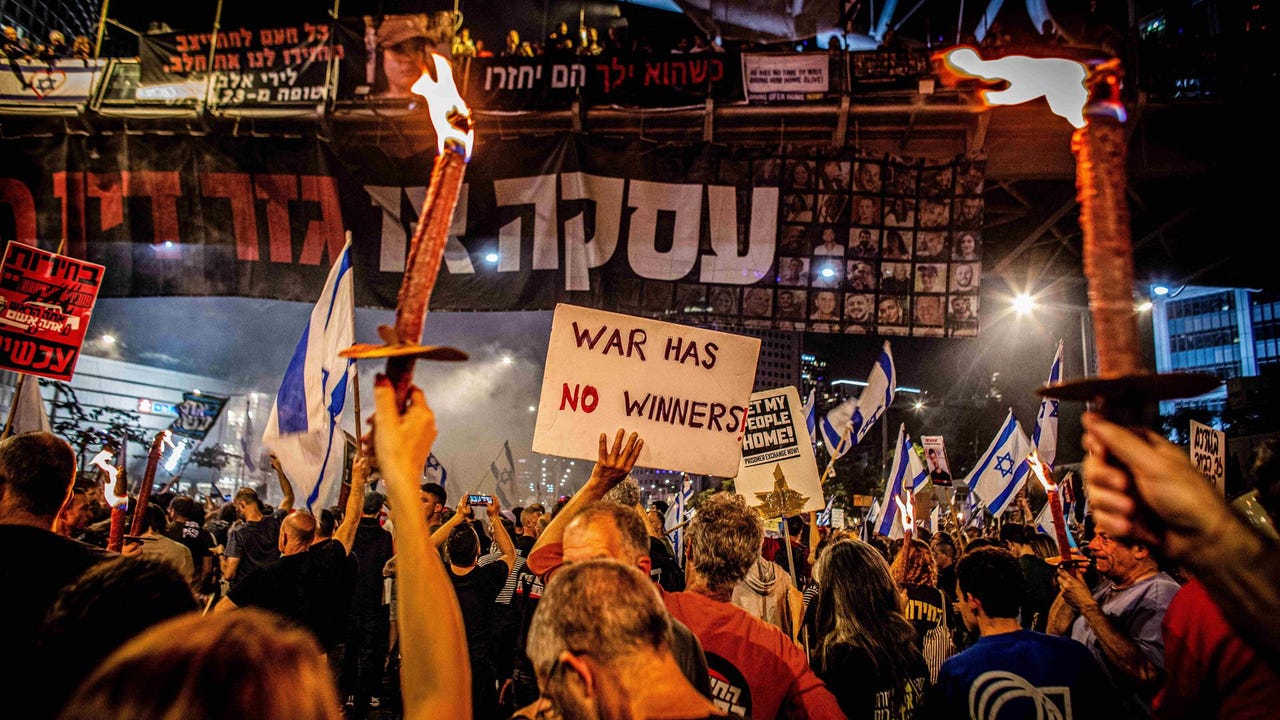The weekend, which in Israel appears on Thursday nights, began with alerts that said “Iran is expected to attack in 24-48 hours.” And the weekend almost came to an end and many citizens, although on alert, continued to go about their lives with one eye on the news, thinking that everything was in order. More or less. Others did not, others called the emotional support lines that quadrupled the number of assistance on Saturday.
“I didn’t sleep all night,” said Tamara Ofir, from Tel Aviv. “I was watching the news and preparing for all possible scenarios. I wondered why the Iranians told so much about their plans, and if they did, perhaps it was to mislead us. Then I didn’t know whether to believe anything the Army spokesperson said, after October 7 they have shown that they are not very trustworthy…”
Ayatollah Ali Khamenei effectively warned three times in recent days that Israel would be punished for the attack attributed to it on April 1 in Damascus that killed seven members of the Iranian Quds Force.
At the end of the night Tamara had prepared luggage for several scenarios: “To go to my mother’s house I packed bags and backpacks for my two children and my husband, to spend a few days at the shelter I packed a couple of suitcases, I set aside water and food. non-perishable, I packed some suitcases in case we still need to escape abroad… I was prepared for the third world war.”
At four in the morning, when it seemed that there was no more development and even the news programs stopped repeating themselves, Ofir went to sleep.
Her husband, Stav, had gone to bed at 10:00 p.m. With the kids. And he says he slept peacefully all night. “I came from playing a game in a ping pong league, that’s what I do some Saturday afternoons,” he explains under the gaze of his wife, who cannot explain this friendliness. Stav says that he cares just enough and that he trusts the country’s security structure.
“It’s part confidence and part ‘if the end of the world is coming, what’s the point of being anxious?’”
Alarms in Jerusalem
In Jerusalem, unlike in Tel Aviv, the alarms did ring. What’s more, missiles and drones passed over the Al Aqsa complex, an Islamic emblem that it was believed that no Muslim would endanger. So much so that, in the 1991 Gulf War, when Saddam Hussein launched Scud missiles at Israel for those who had no defense, many Israelis sought refuge in Jerusalem with the certainty that that city would remain intact.
On Saturday night, when images of missiles over Al Aqsa appeared on television, another misconception was shattered.
“We have believed many things that are not true: that Hamas is not a rival, that what they said they were going to do to us was not true, that the Army protects us…” laments Esther K. from Jerusalem. “Last night I ran to the shelter because I really thought the world was coming down on us. This morning I woke up with the feeling that that’s it. Iran has washed its face, Israel is not going to respond, which is what worried me most, honestly, and life goes on. “Everything is very strange.”

